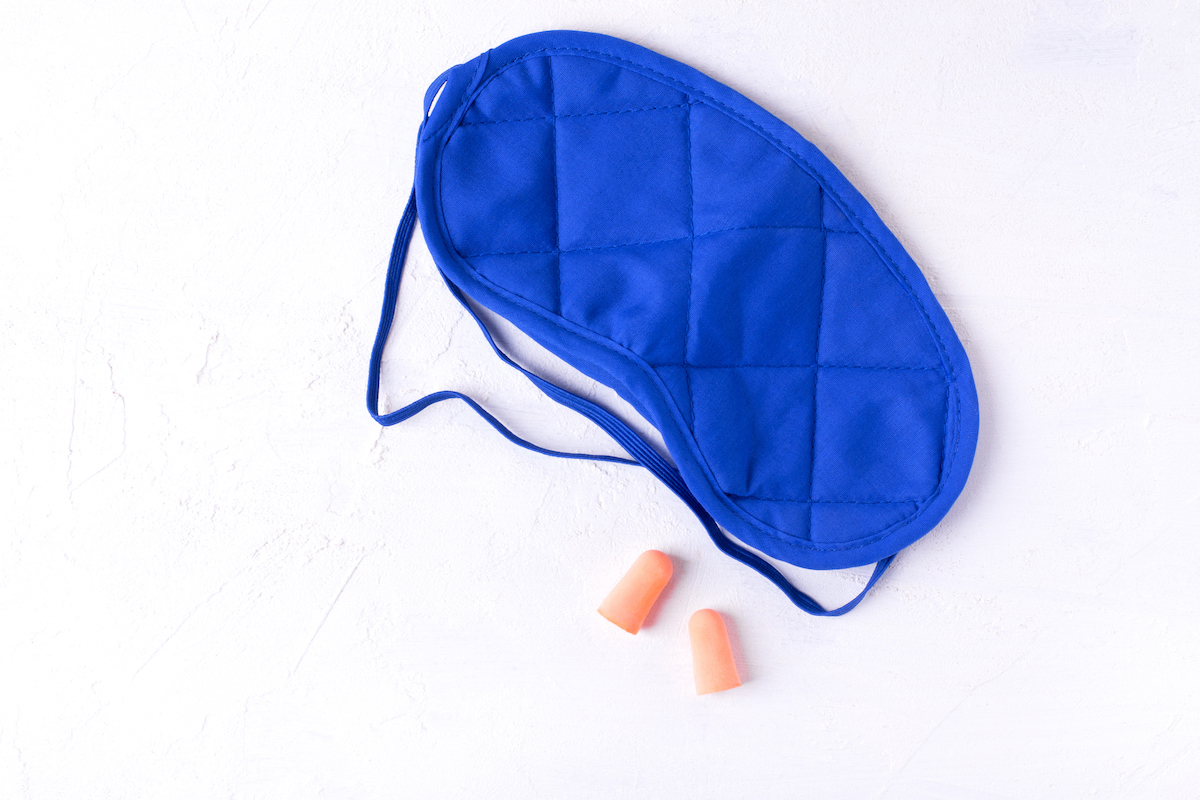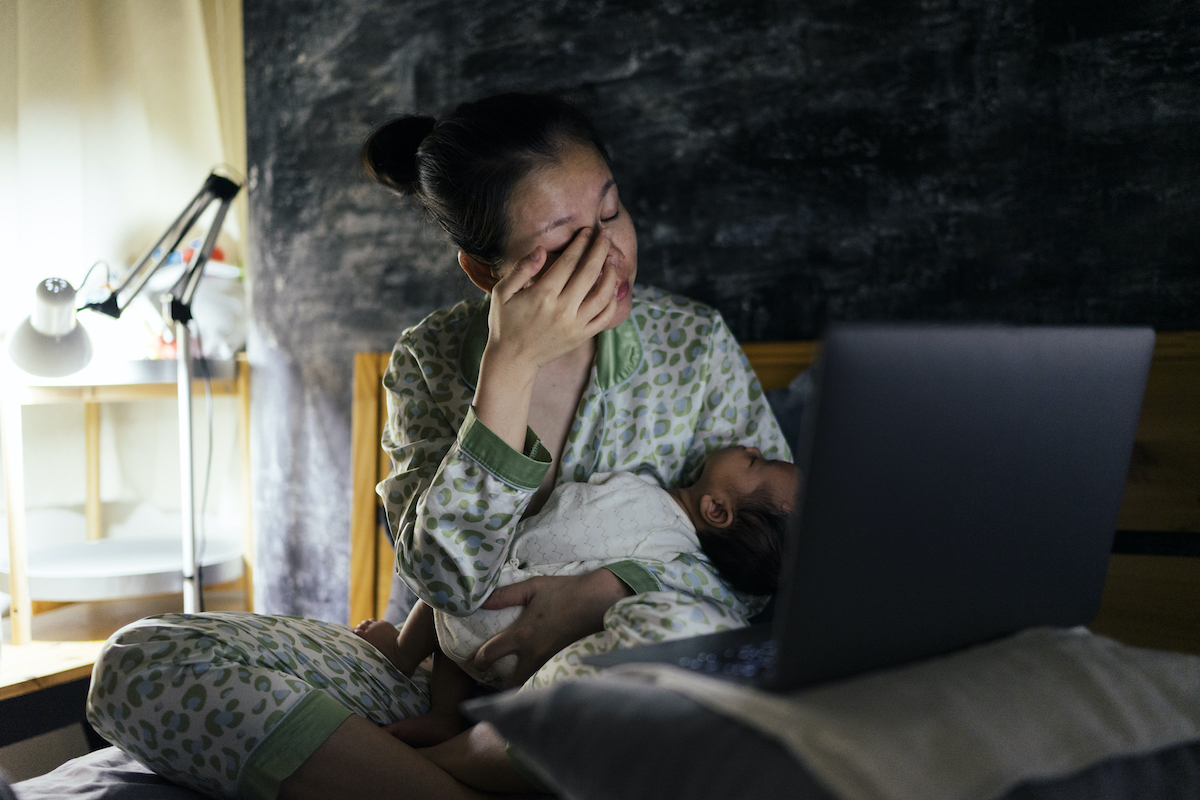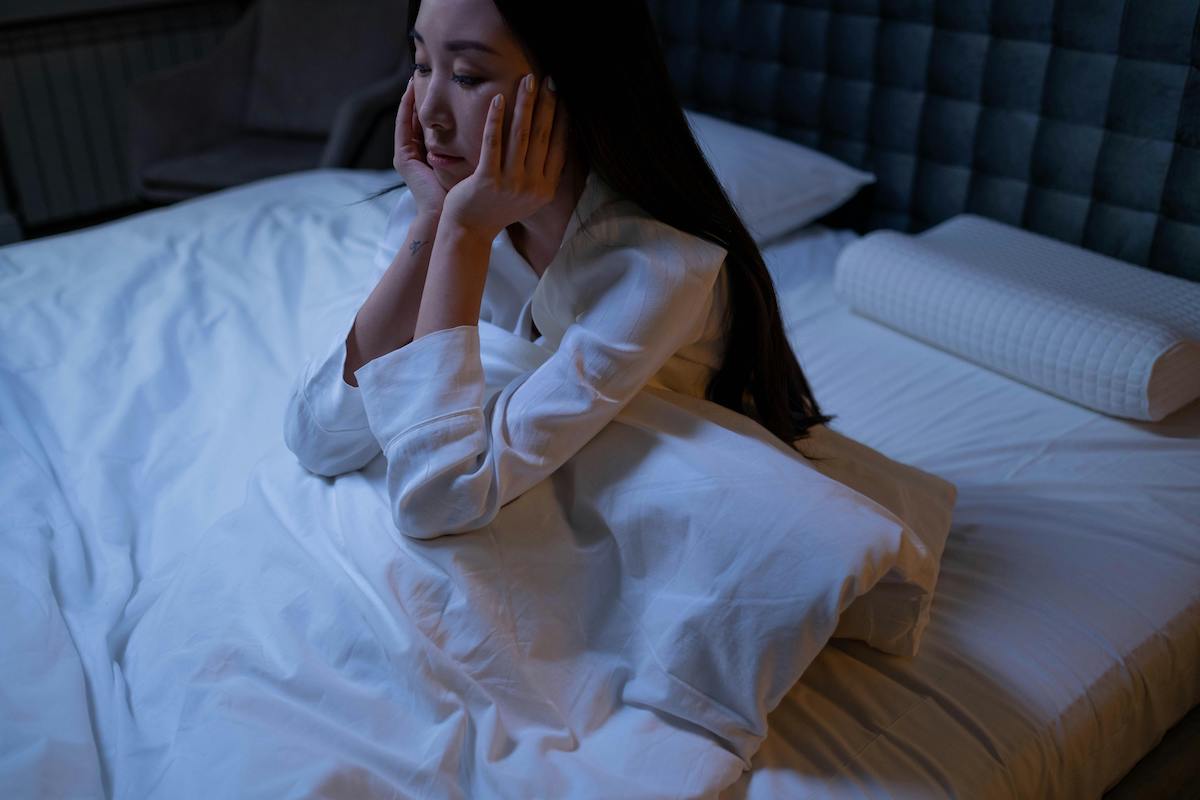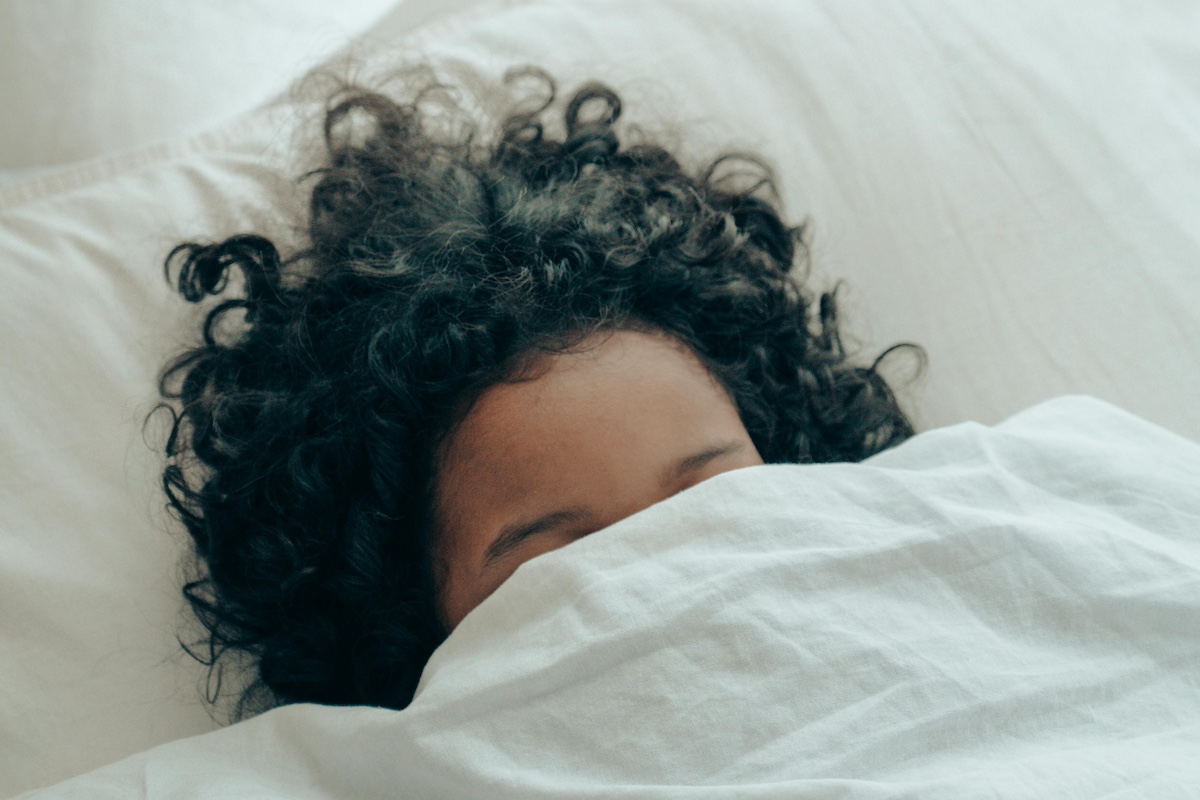In the past few years, I have started waking up in the middle of the night. There doesn’t seem to be a specific reason. My children are older now; they aren’t up. I can’t blame them. I am just inexplicably awake. I know without looking that it is 3 a.m. Sometimes I can turn over and go back to sleep.
Other nights, I get up to use the bathroom. I wonder if my teenager left the front door unlocked and go to check. My brain starts to whirl. I am running through my to-do list on repeat. I am worrying about a conversation I need to have at work. I am trying to remember if the soccer carpool is sorted. When the clock ticks over to 4 a.m., I give up on sleep and get up to start my day. I am already anticipating crawling into bed 18 hours from now.
I know my difficulty with sleep is not unique. My friends and patients in their 40s and 50s all complain of the same thing. My exercise buddy often sends the same text the night before we are set to meet up. “I am so tired, not setting my alarm, but I am sure I will be up.” She is always up.
How big a problem is sleep for women in middle age? Why are we struggling with sleep? And what data-driven treatments can give us some relief?
Why does sleep matter?
It is intuitive that we feel better when we are well rested. We still don’t know why people sleep, but there is a growing body of research telling us that getting enough sleep is critical. An Egyptian study of women in their 40s and 50s found that the most important menopausal symptom that impacted their work capacity and performance was tiredness and sleep disturbance.
Decreased sleep leads to lower quality of life. And inadequate sleep increases a person’s risk for anxiety and depression. Chronic sleep disturbances have also been associated with increased risk for cardiovascular disease and changes in blood sugar metabolism that can lead to diabetes. Untreated sleep apnea is associated with an increased risk for weight gain, diabetes, and heart disease.
There is greater recognition of the importance of sleep for good health. But the problem is not that we don’t want to sleep. We know sleep is important, but we know we are having trouble sleeping.
Why do we struggle with sleep?
Sleep disturbance is defined as having difficulty falling asleep, waking up several times during the night, or waking at least 30 minutes earlier than desired three or more days over the last two weeks.
Most studies of sleep rely on subjective reports from participants. Subjectively, women report sleeping poorly. In a review of sleep and sleep disorders in perimenopause, the authors found that 40% to 60% of women experience sleep disruption during perimenopause. Most of those women complain of frequent nighttime waking. The Study of Women’s Health Across the Nation (SWAN), a longitudinal study of more than 3,000 women in their 40s and 50s, found that subjective reports of sleep disturbance were high.
A portion of SWAN participants underwent sleep studies. In sleep studies, participants are brought to a sleep lab where they spend the night sleeping while being monitored. The monitors collect data on brain waves, eye movement, muscle activity, and heart rhythm. All this data can tell us how much the participants sleep, the quality of that sleep, and, in some cases, why sleep is disrupted.
Data from those studies did not find the same level of sleep disruption women report. There are two possible explanations. The first is recall bias. Participants remember the nights of poor sleep more than those nights they slept well.
Second is that the conditions of the sleep study actually lead the participants to have better sleep. A teacher of mine explained it this way: People come home from vacation talking about how the hotel bed was so comfortable, they slept so well. They run out and buy the same mattress, but their sleep at home is not better. The real reason they slept well was because they were on vacation and more relaxed. Like the vacationers, sleep study participants are away from their usual environment in a place designed for sleep, and so are more relaxed and sleep better than they would at home.
There are several possible causes of perimenopausal sleep disruption.
- It would make sense that hormones are the culprit. But when researchers have tried to find associations between sleep and hormone levels, such as estrogen, progesterone, and follicle-stimulating hormone, they have not found clear correlations between hormone levels and sleep quality.
- Hot flushes and night sweats seem to play an important role in our disrupted sleep. Women with moderate to severe hot flushes are three times as likely to report frequent nighttime wakings. And an analysis of the impact of hot flushes on sleep found that 69% of awakenings occurred coincident with a hot flush.
- Mood changes may also play a role. Mood changes like depression and anxiety are increased in women during perimenopause. Researchers hypothesize that estrogen has a direct effect in the brain that impacts mood. And mood changes are associated with poor sleep. Here the directionality of cause and effect is harder to tease out. Does depression and anxiety cause poor sleep? Possibly. Women who report mood changes report having more difficulty falling asleep. We also know that decreased total sleep and decreased sleep quality increase the risk for depression and anxiety. In reality it is probably both that sleep disruption causes mood changes and that mood changes cause sleep disruption.
- Sleep disorders like sleep apnea and restless leg syndrome are not directly connected to menopause, but midlife is a common time for women to develop sleep disorders like these, which can further exacerbate problems with both falling and staying asleep.
- And don’t discount environmental factors. Women in midlife report more work stress than older and younger women. They also report more personal stress. They are worried about aging parents and adolescent children. Add to that a snoring partner, and you have a recipe for poor sleep.
What can we do to get a good night’s sleep?
First, it is worth taking a moment to think about whether you have other symptoms, like hot flushes and night sweats, snoring, or depression or anxiety. Understanding how those symptoms might be impacting your sleep can help you and your doctor know what treatment may be most helpful to you.
If you think you might have a sleep disorder like sleep apnea, have an evaluation with your doctor. Diagnostic testing can often be prescribed by your primary care provider and done at home with a portable machine. Treating sleep disorders is critical to improving sleep quality.
Otherwise, there are a few places to start. If you are having hot flushes and night sweats, talk to your doctor about starting hormone replacement therapy. Studies have shown that sleep quality does improve with treatment of hot flushes and night sweats.
If you can’t take estrogen — for example, due to a history of breast cancer — non-hormonal treatment for hot flushes and night sweats may be helpful. In clinical trials, Veozah was shown to improve sleep quality among study participants.
If hot flushes and night sweats are not a problem but sleep is, cognitive behavioral therapy of insomnia — a specific talk therapy technique targeted at sleep disturbance — has been shown to improve sleep more than prescription sleep medications. If your sleep disruption is associated with depression or anxiety — or both; they are common bedfellows — antidepressants, especially SSRIs like escitalopram (Lexapro), have been shown to improve sleep.
My patients often ask me about natural sleep aids. It is always nice to have something to try while you wait to see your doctor. Isoflavones — estrogen-like substances produced by some plants like soy — have been shown to improve sleep. Similarly, valerian root was shown to improve sleep in a study of 100 perimenopausal women. Studies of magnesium supplementation show mixed results for improving sleep.
We often talk about behavior modifications that can improve sleep, such as having a bedtime routine, or getting up rather than tossing and turning if you can’t fall asleep. Here the data is mixed. A meta-analysis of the impact of cognitive and behavior changes on sleep quantity and quality found only a modest effect. It is challenging to do these studies well. Typically researchers must rely on the study subjects’ reports of sleep quantity and quality, and trust that the study subjects used the behavioral techniques recommended.
What treatments have been studied for sleep and have not been shown to be helpful? Studies of exercise for improving sleep have mixed results, but exercise has many other proven benefits, so it is reasonable to give it a try. Studies of yoga yield similarly mixed results. Some things that have not been shown to improve sleep include massage and acupuncture.
Sleep is an area where we each might differ regarding what works for us. It can be helpful to try some different behavior changes or supplements and see what works best for you.
The bottom line
- As many as 60% of women report difficulty with sleep during the perimenopausal years.
- There are many reasons why women struggle with sleep in midlife, including hot flushes and night sweats and the onset of sleep disorders.
- Treating hot flushes and night sweats, sleep disorders, and anxiety and depression has been shown to improve sleep in perimenopausal women.
- Some supplements, including isoflavones and valerian root, have been shown to improve sleep in perimenopausal women.





















Log in